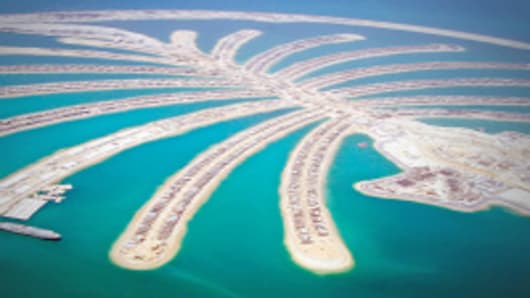Despite political uncertainty induced by recent social turmoil, the Arabic Gulf region can remain attractive to Western investors, experts told CNBC on Wednesday.
The greatest opportunity is in the stock markets in the region as they “are accessible to foreigners and investors, and they’re quite reasonably priced,” Brad Bourland, chief economist and head of proprietary investment at Jadwa Investment, told CNBC on Wednesday.
“So if you differentiate between the countries that weren’t affected that much by the turmoil, but the stock market was pulled down by the turmoil, then I think you see some opportunities. So that would include most of the GCC countries,” he said.
The prospects are quite different for countries like Dubai, Qatar, Bahrain or Saudi Arabia, according to analysts.
“Everyone wants to be a financial sector in the Middle East. Dubai, Qatar, Bahrain — (but) Bahrain is kind of self destructive, to a certain extent, Riyadh is de facto a financial center just by the size and weight of its financial services,” Bourland added, “there are seven or eight … national airlines for six countries, in the Gulf. So there is some overbuilding there, but the stuff related to hydrocarbons, I don’t think it’s overbuilt. The global move of petrochemicals to the Gulf is something that is enduring, there’s a huge price advantage, there’s no overcapacity.”
Commodities are actually the strong point of the region, from oil production to commodity trading between East and West, analyst say.
“Dubai has grown on the business of trade,” Malcolm Wall Morris, CEO at Dubai Multi Commodities center later told CNBC, “the DMCC was established to facilitate commodity trade through the region… Before DMCC was created the value of the diamond business in Dubai, was about $5 million. Last year, it was $35 billion. That’s fairly tangible numbers.”
Western companies are rallying to the region to take advantage of these assets and enjoy such regulations as the Dubai free zone.
“Last year, 725 new companies have established themselves in the (DMCC) free zone,” he said, “that was a 50 percent rise in 2009, and the interesting part is that 90 percent of this business came from outside the region. This year, these numbers have increased even further… we have over 600 new companies, bringing to a total well over 3,000, coming from many, many commodity sectors.”
The attractiveness of the region is also emphasized by the uncertainty in Western investors’ home markets.
“I think people are realizing that the maybe their home economies in the West aren’t doing so well,” Morris said. “they look at the GCC. They do look at oil prices. They look at the consumer market, and rather than just looking, they’re doing. And Dubai is the natural place.”




